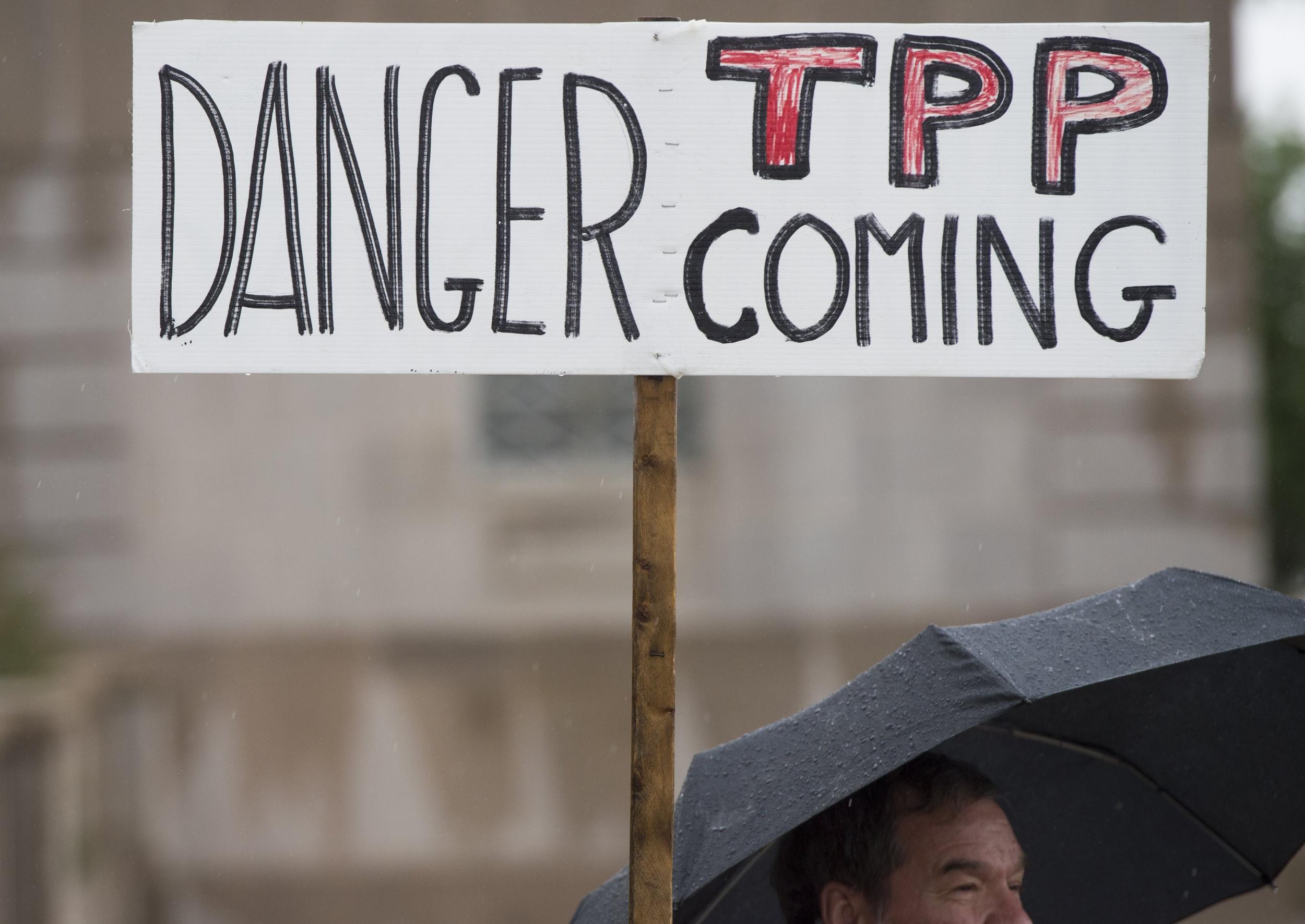TPP signed: the ‘biggest global threat to the internet’ agreed, as campaigners warn that secret pact could bring huge new restrictions to the internet
The Trans-Pacific Partnership agreement covers 40 per cent of the world’s economy, and sets huge new rules for online businesses as well as traditional ones

An agreement that some campaigners have called the “biggest global threat to the internet” has just been signed, potentially bringing huge new restrictions on what people can do with their computers.
The Trans-Pacific Partnership is the conclusion of five years of negotiations, and will cover 40 per cent of the world’s economy. Its claimed purpose is to create a unified economic bloc so that companies and businesses can trade more easily — but it also puts many of the central principle of the internet in doubt, according to campaigners.
One particularly controversial part of the provisions make it a crime to reveal corporate wrongdoing "through a computer system". Experts have pointed out that the wording is very vague, and could lead to whistleblowers being penalised for sharing important information, and lead to journalists stopping reporting on them.
Others require that online content providers — such as YouTube and Facebook — must take down content if they receive just one complaint, as they are in the US. That will be harmful for startups looking to build such businesses since they'll be required to have the resources to respond to every complaint, experts have pointed out.
In 2013, when the partnership was still being discussed, the Electronic Frontier Foundation called TPP “one of the worst global threats to the internet”. The changes are dangerous because to unify the various countries in the partnerships’ rules on intellectual property and other internet law, they are opting to take the US’s largely very restrictive rules.
“The TPP is likely to export some of the worst features of U.S. copyright law to Pacific Rim countries: a broad ban on breaking digital locks on devices and creative works (even for legal purposes), a minimum copyright term of the lifetime of the creator plus seventy years (the current international norm is the lifetime plus fifty years), privatization of enforcement for copyright infringement, ruinous statutory damages with no proof of actual harm, and government seizures of computers and equipment involved in alleged infringement,” wrote Katitza Rodriguez and Maira Sutton.
The changes could also lead to huge new rules about surveillance.
“Under this TPP proposal, Internet Service Providers could be required to "police" user activity (i.e. police YOU), take down internet content, and cut people off from internet access for common user-generated content,” write Expose The TPP, a campaign group opposing the agreement.
As well as imposing strict rules on those on the internet, activists point out that some of the parts of the agreement could limit central parts of the internet and modern computers. A restriction on breaking “digital locks” for instance — which is meant to allow companies to control their products even after they have been bought by customers — could stop disabled people from making important changes to their computers or using different technology.
The agreement has been made in secret and will not be fully published publicly for years.
Tech experts wrote to the US Congress in May to demand more transparency about the agreement.
"Despite containing many provisions that go far beyond the scope of traditional trade policy, the public is kept in the dark as these deals continue to be negotiated behind closed doors with heavy influence from only a limited subset of stakeholders," they wrote.
Join our commenting forum
Join thought-provoking conversations, follow other Independent readers and see their replies
Comments
Bookmark popover
Removed from bookmarks